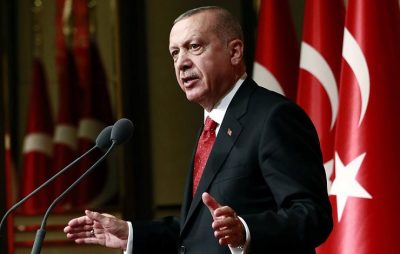Turkey Faced with Revolt Among Its Syrian Proxies Over Libyan Incursion

Relations between Turkey and Syrian armed groups that used to be considered cordial due to massive support provided by the Turkish authorities to the Syrian opposition are rapidly deteriorating over Turkey’s incursion into the Libyan conflict, according to sources among the Syrian militants fighting in Libya.
Last month, over 2,000 fighters defected from Sultan Murad Division, one of the key armed factions serving the Turkish interests in Syria. The group’s members chose to quit after they were ordered to go to Libya to fight on the side of the Turkey-backed Government of National Accord (GNA). This marks a drastic shift in the attitude of the Syrian fighters towards participation in the Libyan conflict: just a few months ago there was no shortage of mercenaries willing to fly to Libya via Turkey for a lucrative compensation of $2,000 – 5,000 and a promise of Turkish citizenship offered by Ankara.
Both promises turned out to be an exaggeration, if not a complete lie. The militants who traveled to Libya got neither the money nor the citizenship and other perks that were promised to them, revealed a fighter of Ahrar al-Sharqiya faction Zein Ahmad. Moreover, he pointed out that after the fighters arrived in Libya they were immediately dispatched to Tripoli, an arena of regular clashes between GNA forces and units of the Libyan National Army despite Turkish promises of tasking them with maintaining security at oil facilities.
Data gathered by the Syrian Observatory for Human Rights shows that around 9,000 members of Turkey-backed Syrian armed factions are currently fighting in Libya, while another 3,500 men are undergoing training in Syria and Turkey preparing for departure. Among them are former members of terror groups such as Al-Qaeda affiliate in Syria Hayat Tahrir al-Sham, as confirmed by reports of capture of a 23-years-old HTS fighter Ibrahim Muhammad Darwish by the LNA forces. Another example is an ISIS terrorist also captured by the LNA who confessed that he was flown in from Syria via Turkey.
By sending the Syrian fighters to Libya Ankara intended to recycle and repurpose these groups for establishing its influence without the risks and consequences of a large-scale military operation involving major expenses and casualties among Turkish military personnel. However, the recent developments on the ground show that this goal was not fully achieved.
The Syrian fighters sustain heavy casualties due to the lack of training and weaponry. Total count of losses among the Turkey-backed groups reached hundreds and continue to grow as GNA and LNA clash with intermittent success. Until Turkey’s President Recep Erdogan curbs his ambition, destructive nature of involvement of the Syrian armed groups in Libya may result in the downfall of Turkey’s influence over the Syrian opposition.
*
Note to readers: please click the share buttons above or below. Forward this article to your email lists. Crosspost on your blog site, internet forums. etc.
Ahmad al-Khaled is a freelance journalist with primary focus on the involvement of foreign actors in the Syrian conflict and its consequences on both regional and global levels.

